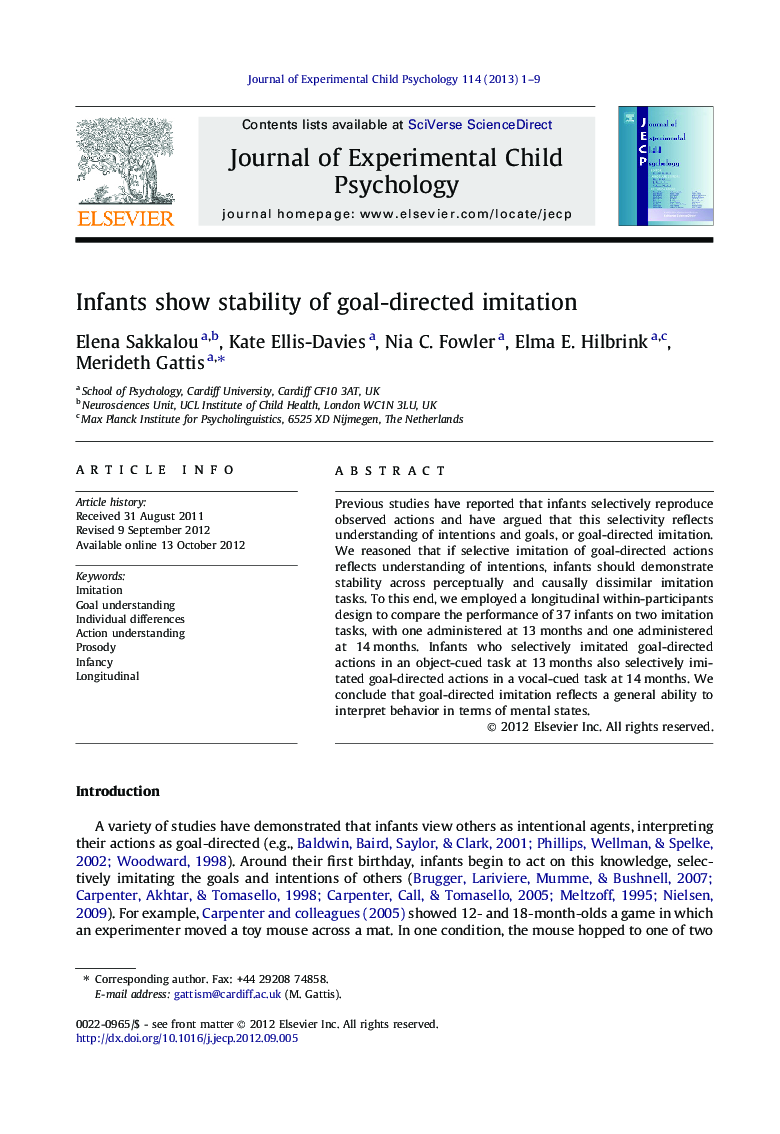| Article ID | Journal | Published Year | Pages | File Type |
|---|---|---|---|---|
| 918155 | Journal of Experimental Child Psychology | 2013 | 9 Pages |
Previous studies have reported that infants selectively reproduce observed actions and have argued that this selectivity reflects understanding of intentions and goals, or goal-directed imitation. We reasoned that if selective imitation of goal-directed actions reflects understanding of intentions, infants should demonstrate stability across perceptually and causally dissimilar imitation tasks. To this end, we employed a longitudinal within-participants design to compare the performance of 37 infants on two imitation tasks, with one administered at 13 months and one administered at 14 months. Infants who selectively imitated goal-directed actions in an object-cued task at 13 months also selectively imitated goal-directed actions in a vocal-cued task at 14 months. We conclude that goal-directed imitation reflects a general ability to interpret behavior in terms of mental states.
► We examined whether goal-directed imitation reflects mental state understanding. ► We tested infants longitudinally on two perceptually- and causally-dissimilar tasks. ► If infants imitate based on mental states, they should show stability across tasks. ► Infants showed stability in imitative performance across the two tasks. ► Goal-directed imitation reflects interpretation of behavior in terms of mental states.
